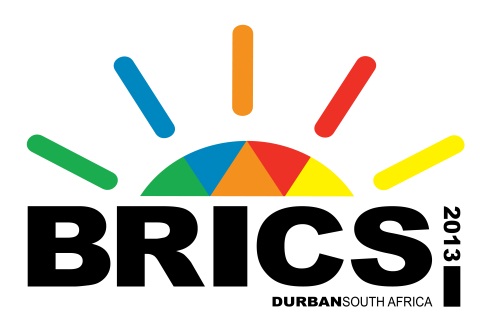

BRICS Information Centre

 |
 BRICS Information Centre |
 |

Statement by Russian President Vladimir Putin
after the Plenary Session of the 5th BRICS Summit
Durban, South Africa, March 27, 2013
[see also Analysis by the BRICS Research Group]
Colleagues, ladies and gentlemen,
Work in the BRICS group is one of Russia's foreign policy priorities.
The medium- and long-term strategy, as we see it, is to consolidate the BRICS group as a key part of the global governance system in the political, legal, financial and economic spheres.
On-going cooperation with our BRICS partners guides the work we are undertaking within Russia's presidency of the G20. I want to take this opportunity today to thank once again my BRICS colleagues for supporting Russia's initiatives and helping us to develop the substance of the draft decisions for the summit that will take place in St Petersburg in September.
To overcome the negative trends on global markets the BRICS countries must make greater use of their own resources and possibilities. My colleagues, including the President of Brazil [Dilma Rousseff], spoke about this just now.
We have to achieve a quality expansion in our trade and economic cooperation, substantially broaden our mutual investment and launch big multilateral business projects.
We are already working in these areas. After the meeting is over, we will sign agreements between the BRICS countries on cooperation and co-financing in green economy projects and also infrastructure projects in Africa. We are also working on the idea of establishing the BRICS Development Bank. Russia thinks this is a project we can continue, and this position will be reflected in the summit's final document.
The Business Council has been established at Russia's initiative. Our business communities should focus on finding new opportunities for launching multilateral investment projects. Russia's leadership will do everything it can to assist our business communities' work.
We hope that our BRICS partners will support the initiative Russia put forward today to organise cooperation in the mining and processing sectors. The sectors concerned include aviation, the radio-electronics industry, energy machine building, the metals industry, machine-tool building, production and use of mineral resources.
The BRICS agenda is growing and new opportunities are emerging. The need to coordinate our on-going work is thus ever clearer. We propose examining the possibility of setting up a virtual BRICS secretariat that would be a working instrument for dialogue between our governments and an important information resource objectively covering our organisation's work for the global public.
To this end, we support the idea of getting the scientific community more actively involved in launching innovative projects for the BRICS group. The Consortium of BRICS countries' Expert Centres will work on just this.
We think it an important task to draw up a draft international development strategy for the BRICS group. Another avenue for work is to expand the circle of BRICS dialogue partners in all different areas. We are taking our first step in this direction at this summit by holding a meeting between the BRICS group and African leaders.
It would be useful to develop regular contacts between our group and the main international and regional organisations and organise systemic cooperation above all with the United Nations and its specialised agencies. I therefore propose that we send our summit's final document to the UN Secretary-General and UN General Assembly President.
There is an ever clearer need to consistently develop joint efforts in combating modern threats and challenges such as terrorism and drugs trafficking. Russia proposes holding the first meeting of the heads of our countries' drugs control agencies in June this year in Moscow.
We must take purposeful steps to strengthen the foundations of international information security and use the BRICS countries' potential for launching initiatives in this area. It would be good to have the relevant agencies in our countries continue work on drafting a framework document that would set out the BRICS countries' common policy in this area.
We place priority importance on expanding cooperation in humanitarian areas too. Russia proposes that we speed up the work to approve the multilateral intergovernmental agreement on cooperation in culture. This work is already underway.
Our countries' civil societies are becoming more and more active within the BRICS format. The first meeting between young leaders from our countries will take place this year, and the parliamentary forum is preparing its launch.
I want to conclude by thanking the hosts, the President of South Africa [Jacob Zuma], and all of our colleagues for this fruitful and productive cooperation. I am sure that if we continue working in this spirit of partnership we will find effective solutions to the problems facing our countries and peoples, and will have a big and positive impact on global economic development.
Thank you for your attention.
Source: Kremlin